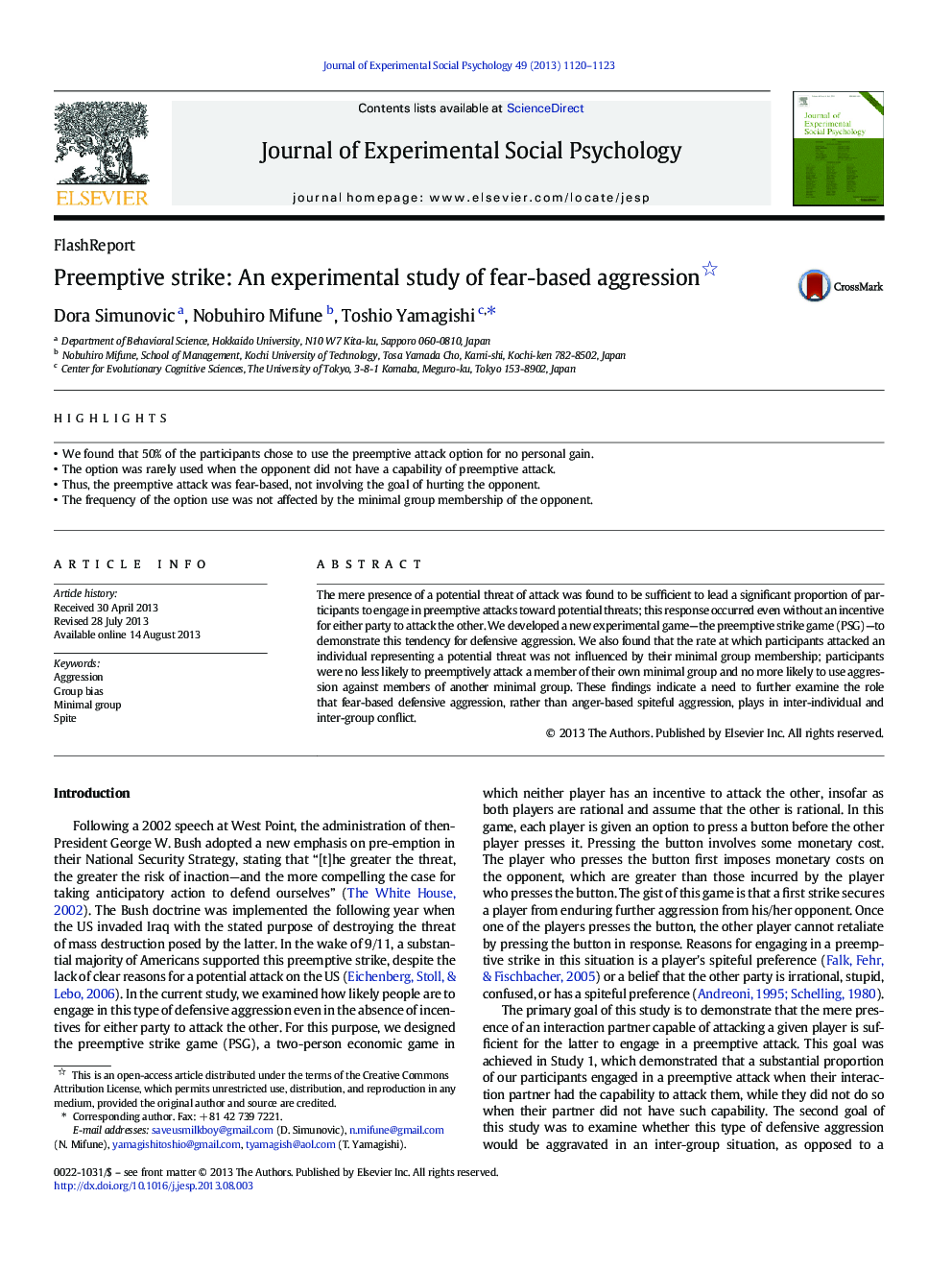| Article ID | Journal | Published Year | Pages | File Type |
|---|---|---|---|---|
| 10468563 | Journal of Experimental Social Psychology | 2013 | 4 Pages |
Abstract
The mere presence of a potential threat of attack was found to be sufficient to lead a significant proportion of participants to engage in preemptive attacks toward potential threats; this response occurred even without an incentive for either party to attack the other. We developed a new experimental game-the preemptive strike game (PSG)-to demonstrate this tendency for defensive aggression. We also found that the rate at which participants attacked an individual representing a potential threat was not influenced by their minimal group membership; participants were no less likely to preemptively attack a member of their own minimal group and no more likely to use aggression against members of another minimal group. These findings indicate a need to further examine the role that fear-based defensive aggression, rather than anger-based spiteful aggression, plays in inter-individual and inter-group conflict.
Keywords
Related Topics
Life Sciences
Neuroscience
Behavioral Neuroscience
Authors
Dora Simunovic, Nobuhiro Mifune, Toshio Yamagishi,
